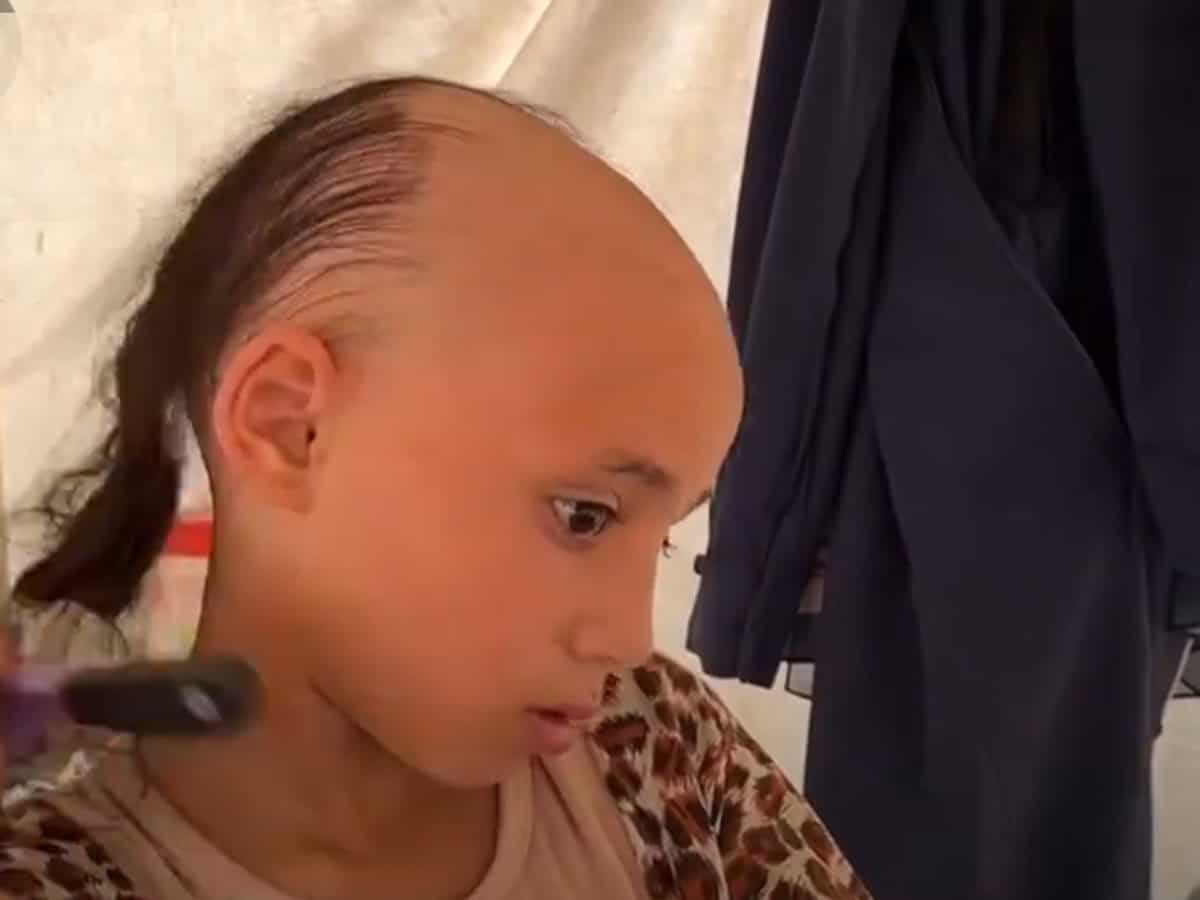
In a poignant reflection of the psychological toll of war, an 8-year-old Palestinian girl Sama Tabil has shared her harrowing experience of losing her hair due to trauma stemming from the ongoing conflict in Gaza.
The girl recounted the distressing moments that led to her sudden hair loss, a condition known as alopecia areata, which can be triggered by severe stress and emotional upheaval.
The conflict, which has intensified in recent months, has left countless families in Gaza grappling with the consequences of violence, displacement, and loss.
For this young girl, the sounds of airstrikes and the fear of losing loved ones have manifested in her physical health, illustrating the profound impact of war on children’s mental well-being.
In an interview with Al Jazeera, she described how her hair began to fall out shortly after witnessing a bombing near her home. “I was so scared. I couldn’t sleep, and then one day, I noticed my hair was coming out in clumps,” she said, her voice trembling as she spoke about the anxiety and fear that have become part of her daily life.
Medical professionals have noted a rise in cases of stress-related hair loss among children in conflict zones, emphasizing the urgent need for psychological support and intervention.
Experts warn that the effects of such trauma can linger long after the immediate dangers have passed, potentially leading to long-term mental health issues.
Community leaders and health advocates are calling for increased resources to address the mental health crisis facing children in Gaza.
They stress the importance of creating safe spaces for children to express their fears and anxieties, as well as providing access to mental health services.
As the conflict continues, the plight of children like this young girl serves as a stark reminder of the human cost of war. Her story highlights the urgent need for peace and stability, not just for the sake of the present, but for the future of the region’s youth.



